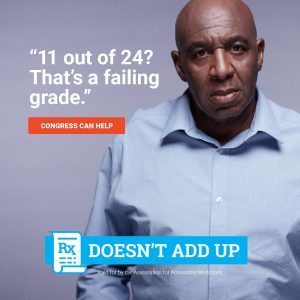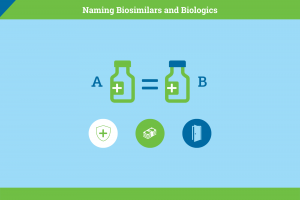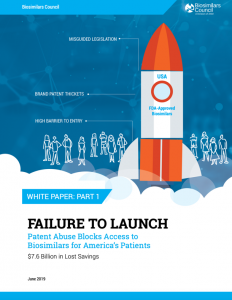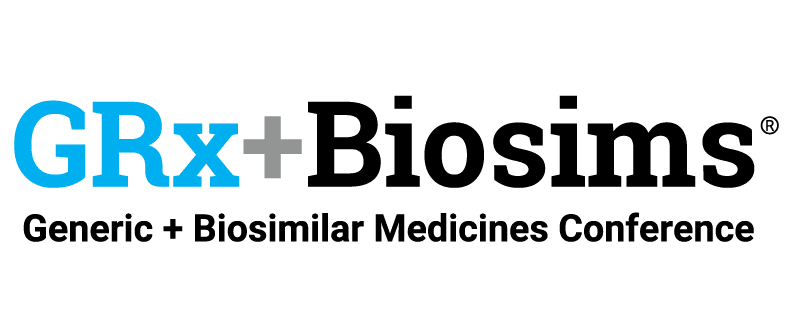Each month, the Biosimilars Council sends a newsletter with the latest updates in the biosimilars industry including policy movement, educational resources and upcoming events. To stay current on biosimilars, sign-up to receive these monthly updates on the form to the right.
Biosimilars Bulletin | January 2020
News and Updates
AAM and its Biosimilars Council Applauds House Passage of the CREATES Act
We applaud the passage of the CREATES Act, which will lower drug prices for patients through increased competition and by stopping the abuse of FDA’s safety programs and non-FDA mandated closed distribution systems.
Giveaway to Brand Manufacturers in End of Year Spending Bill
Groups that advocate for development of generic and biosimilar drugs say the government spending bill signed by President Donald Trump includes a provision that is a giveaway to branded drug makers.
Why Price of Humira Keeps Rising Despite FDA Approval of Generic Competition
Biosimilars have so much to offer for America’s patients, but the potential savings that they can bring is being squashed by burdensome patent thickets in the name of profits,” said Christine Simmon, Executive Director of the Biosimilars Council.
Drug Pricing Proposals and Implications for Biosimilars
Biosimilars are considered a critical measure to lower drug costs, and there is a general push to increase utilization through these many pricing proposals.
California AG Fights AAM’s Bid to Block Pay-for-Delay Ban
In a court filing, California’s Attorney General is pushing back against a last-ditch effort by generic drug makers to block California’s new pay-for-delay law. (Paid Sub. Req.)
Trade Deal Leaves PhRMA out in the Cold
The Pharmaceutical Research and Manufacturers of America (PhRMA) is the lone major trade group not supporting President Trump’s new North American trade deal after the drug industry lost crucial intellectual property (IP) protections in the agreement.
Five Lessons From the 2020 Formulary Exclusions and Some Thoughts on Patient Impact
PBMs are slowly adopting provider-administered biosimilars on their pharmacy benefit formularies. Pharmacy benefit biosimilar drugs are not here yet, so PBMs have focused on provider-administered drugs.
The Biosimilar Solution to Expensive Cancer Care
“Fail-first” policies amount to insurers effectively eliminating the lower-cost biosimilars as a treatment option for patients to choose over their more expensive originator biologics. Last summer, the FTC opened an investigation into the contracting practices of Johnson & Johnson’s for infliximab originator, an auto-immune drug, Remicade.
Biologics Are Not a Natural Monopoly
Historically, economic theory states that a natural monopoly is the result of economies of scale where it is only efficient to have one firm in the industry. There is no suggestion of such economies of scale in biologics.
Featured Resources

DoesntAddUp.com
Visitors to the site can access recently published AAM white papers that quantify the growing barriers that keep generics and biosimilars grom getting approved, launching onto the market, staying on the market and being covered for patients.

Member Spotlight Series
As part of the Biosimilar Council’s commitment to broad stakeholder education about the promise of biosimilars, we’ve launched the first in a series of member spotlights. We are thrilled to begin with Dr. Hillel Cohen, Executive Director, Scientific Affairs at Sandoz, Inc.

Suffix vs No Suffix: Naming Biologics and Biosimilars
Understanding how biologic drugs are named can alleviate stakeholder confusion and lead to great biosimilars adoption. Check out our newest infographic on biosimilar naming.

Failure to Launch White Paper Series
The Biosimilars Council found that delayed entry of biosimilars dur to brand-name biologic companies’ anti-competitive market access tactics have cost the U.S. health care system billions of dollars in lost savings.
Upcoming Events
AAM Annual Meeting: Access! 2020
May 11-13, 2020
Washington, D.C.
About the Biosimilars Council
The Biosimilars Council, a division of the Association for Accessible Medicines (AAM), works to ensure a positive environment for patient access to biosimilar medicines. The Biosimilars Council is a leading source for information about the safety and efficacy of more affordable alternatives to costly brand biologic medicines. Areas of focus include public and health expert education, strategic partnerships, government affairs, legal affairs and regulatory policy. More information is available on our about page.
About AAM
AAM is driven by the belief that access to safe, quality, effective medicine has a tremendous impact on a person’s life and the world around them. Generic and biosimilar medicines improve people’s lives, improving society and the economy in turn. AAM represents the manufacturers and distributors of finished generic pharmaceuticals and biosimilars, manufacturers and distributors of bulk pharmaceutical chemicals, and suppliers of other goods and services to the generic industry. Generic pharmaceuticals are 90 percent of prescriptions dispensed in the U.S. but only 23 percent of total drug spending. Additional information is available at www.accessiblemeds.org.
